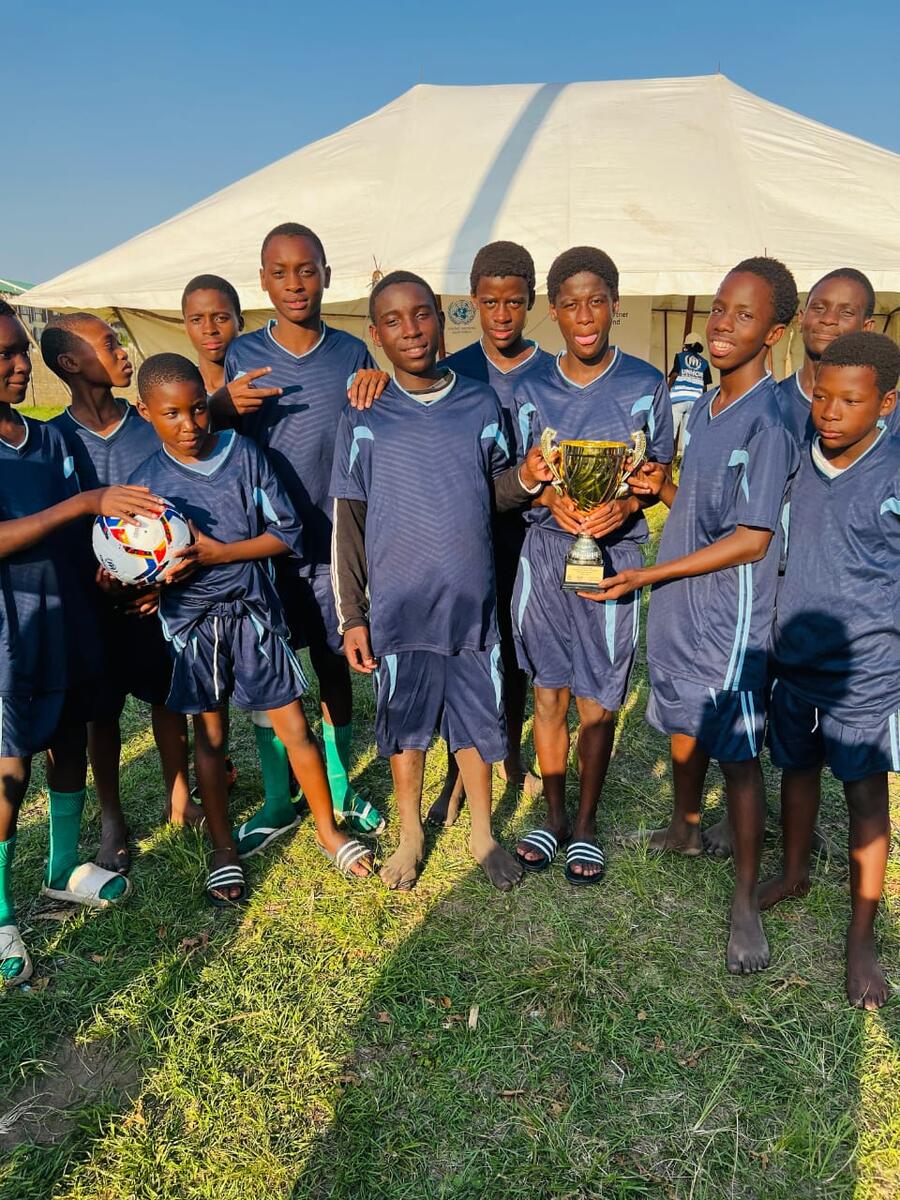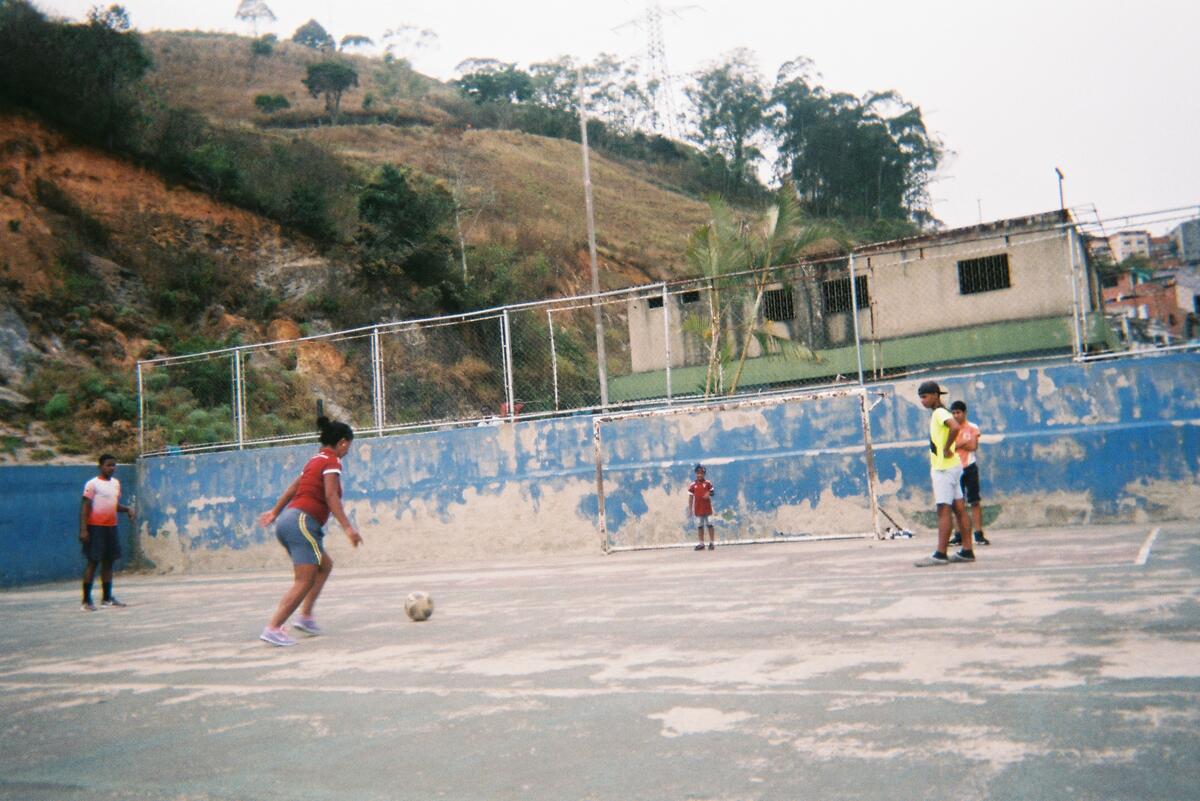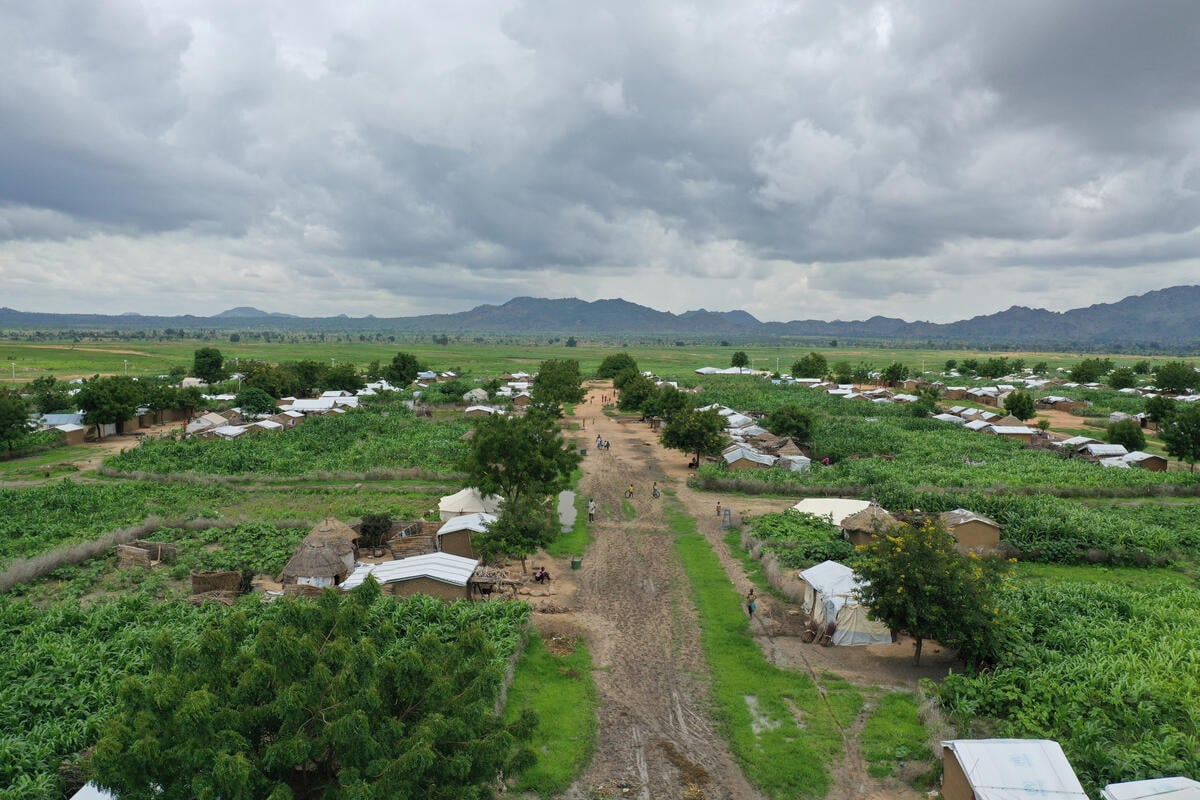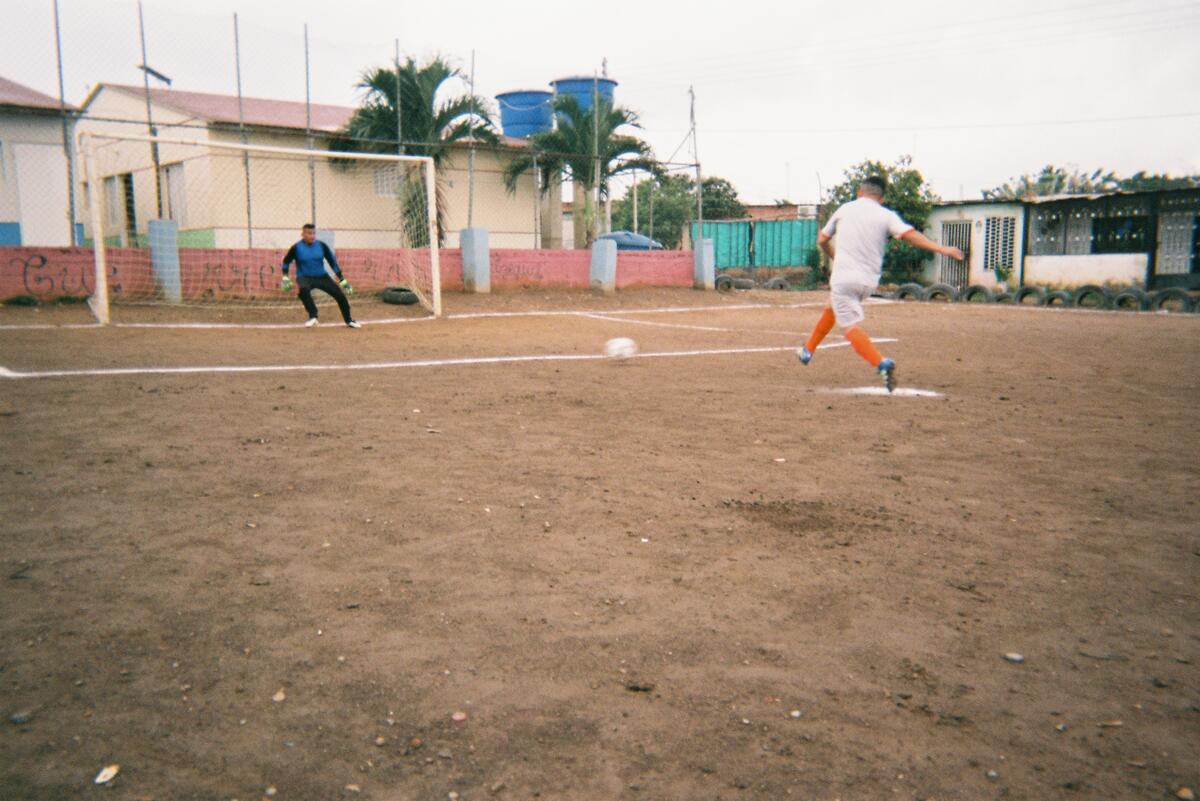Refugee and South African children unite to celebrate Heritage Month
Refugee and South African children unite to celebrate Heritage Month

Soccer-mad17-year-old Gcinile Mthembu has long dreamed to play for South Africa’s national soccer team Bafana Bafana, despite the fact that his parents are refugees from Mozambique.
So, when he learned that UNHCR, the UN Refugee Agency, had chosen his township of Esikhawini in KwaZulu-Natal province, to host a soccer tournament to promote social cohesion and to mark September’s Heritage Month celebrating South Africa’s rich cultural diversity, he was very excited.
“This is an opportunity to unite refugees and the local communities amongst whom we live and develop my skills to become a professional soccer player,” he says.
Like many of his peers, Gcinile has had his fair share of bullying because he is considered a foreigner. He often hides his nationality from other pupils at his school because he does not want to be discriminated against or called names. Only a few friends know about his family’s origin.
“I used to have friends who called me names and I had to cut the friendships off,” says Gcinile.
Born in South Africa to Mozambican parents, Gcinile knows no other country as his home. He has integrated well into the township having adopted local culture and traditions. Like many of his refugee peers, he speaks isiZulu, the local indigenous language, fluently.
“This is an opportunity to unite refugees and the local communities amongst whom we live."
His parents are from Matola-Gare, a township on the outskirts of the capital, Maputo. Gcinile’s father fled to South Africa in 1987 and his mother, Nothembane Mthembu, arrived some years later.
Gcinile’s father, Zacharia Sambo explains the circumstances that led to him becoming a child refugee. “I was 11 or 12 years old when I ran away from home to hide during the conflict between the ruling party and the rebel movement. I had no other option but to run away to protect myself as I was an orphan. I had to run to South Africa and settled here in Esikhaweni.”
Both Zacharia’s parents were killed during the war. “It was a difficult time for the family, we struggled to survive. But we came to South Africa determined to change our lives for the better,” he adds.
Despite their determination to integrate, Gcinile’s mother says the family still struggles to make ends meet.
“With no stable jobs available, I started selling fruits and vegetables on the streets,” she says. We are still struggling but we are surviving.”
The devastating floods that swept the local area in April this year killing over 435 people have also had an impact on the family. “As you can see, we live in a wetland,’ she explains. ‘During heavy rainfall, the place gets flooded, and water gets inside the house.”
In recent months, anti-foreigner protests and attacks in the area have also affected the family.
Coming from Mozambique, locals refer to Gcinile and his family as ‘amaShangana,’ a belittling derogatory reference to his ethnic group, the Tsonga.
“These are some of the things we must change,” says Mbali Mushathama, UNHCR’s Senior Protection Assistant, explaining why the Heritage Day events were organised in the township by UNHCR and the local organisation, the African Solidarity Campaign (AfriSoC).
The celebration included a soccer tournament for six teams of local boys and girls. Approximately 200 people attended the event, both South Africans as well as refugees from the Democratic Republic of the Congo (DRC), Mozambique, and Zimbabwe. Local leaders and traditional dance troupes also came together at the local sports ground, where messages promoting unity, tolerance, and appreciation for diversity were featured in all the activities.
“The event is also an opportunity for us to use sports to promote social cohesion and inclusion.”
UNHCR encouraged members of the community to embrace the spirit of ubuntu, a term that is used in South Africa that calls for “togetherness” and a united Africa.
“It was important that we bring together local and refugee children to discuss our different cultures and the importance of tolerance for diversity,” says Mbali. “The event is also an opportunity for us to use sports to promote social cohesion and inclusion.”
Sandisile Blaai, the coach of Abanye United, Gcinile’s soccer club, couldn’t agree more. “Sports bring people of different backgrounds together,” he says. “It also motivates young people to stay away from drugs and alcohol abuse. It is one of the best Heritage Day events I can remember.”
“We are happy that we are celebrating Heritage Month and using sports as a means to unite everyone in Esikhawini,” say Nothando and Asibonge, local children from the township who also participated in the day’s events.
“Our hope is that Gcinile and my other children finish their education and find proper jobs,” says Zacharia. “As a parent, I am glad that his focus is on his education and soccer. I am proud of him. I encourage him to work hard for a better life.”
Nothembane’s eyes light up when she speaks about Gcinile. “I appreciate that my son loves playing soccer and I wish him great success. His love for soccer started at an early stage. He has taken after his uncles who play soccer back home in Mozambique.”
“We need more events like this to highlight the importance of our heritage and different cultures,” says Benit Radjao Sumaili, a refugee from the DRC. “Once we come together as foreign nationals and locals, it would be easy to prevent any kind of violence amongst ourselves.”
As for Gcinile Mthembu, Heritage Day in his small township is an event he will remember for a long time.
“I hope UNHCR will organise more of these activities in other townships across South Africa,” says Gcinile, smiling.







